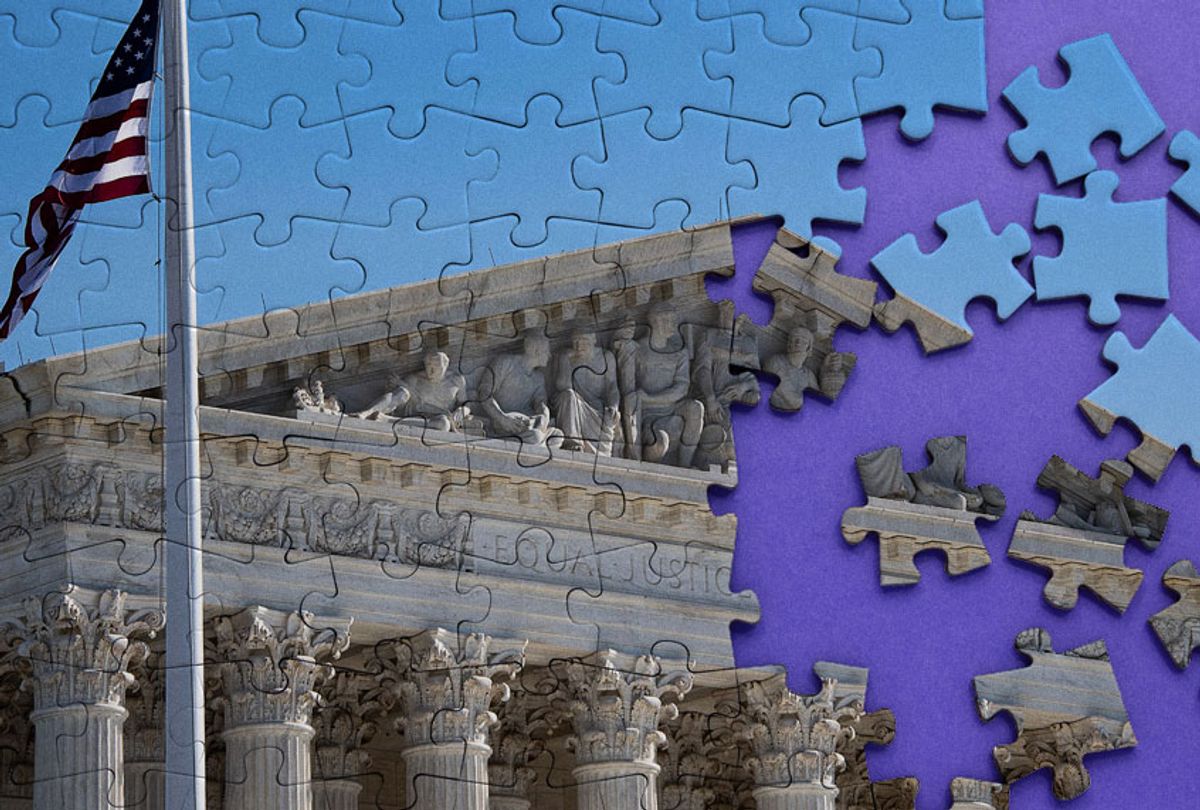The Supreme Court ruled on Thursday that federal judges cannot stop states from gerrymandering legislative districts in ways that critics perceive as excessively partisan.
Writing for the majority in Rucho v. Common Cause — one of the two gerrymandering-based cases to appear before the bench — Chief Justice John Roberts acknowledged that highly gerrymandered districts can create un-democratic outcomes but argued it was not the Supreme Court's role to correct that problem.
"Excessive partisanship in districting leads to results that reasonably seem unjust," Roberts said. "But the fact that such gerrymandering is 'incompatible with democratic principles . . . does not mean that the solution lies with the federal judiciary."
"We conclude that partisan gerrymandering claims present political questions beyond the reach of the federal courts," he continued. "Federal judges have no license to reallocate political power between the two major political parties, with no plausible grant of authority in the Constitution, and no legal standards to limit and direct their decisions."
After arguing that the dissenting opinions on the issue ignored judicial precedent, Roberts claimed that declaring partisan gerrymandering to be unconstitutional would dangerously expand the power of the courts.
"What the appellees and dissent seek is an unprecedented expansion of judicial power. We have never struck down a partisan gerrymander as unconstitutional — despite various requests over the past 45 years," Roberts wrote. "The expansion of judicial authority would not be into just any area of controversy, but into one of the most intensely partisan aspects of American political life."
"That intervention would be unlimited in scope and duration — it would recur over and over again around the country with each new round of districting, for state as well as federal representatives," he added. "Consideration of the impact of today’s ruling on democratic principles cannot ignore the effect of the unelected and politically unaccountable branch of the federal government assuming such an extraordinary and unprecedented role."
In a dissenting opinion, Associate Justice Elena Kagan argued that the court was abdicating its responsibility to protect the democratic rights of individual citizens.
"Of all times to abandon the court’s duty to declare the law, this was not the one," Kagan wrote. "The practices challenged in these cases imperil our system of government. Part of the court’s role in that system is to defend its foundations. None is more important than free and fair elections. With respect but deep sadness, I dissent."
Rucho v. Common Cause was brought before the Supreme Court by Democratic voters and voting rights groups who claimed the congressional redistricting plan implemented by North Carolina in 2016 was unconstitutional. A similar case, Lamone v. Benisek, was brought by seven Republican voters who argued that former Gov. Martin O'Malley, a Democrat, unfairly diluted Republican voter representation in that state's 6th Congressional District.
In response to the court's decision, Democratic Legislative Campaign Committee Executive Director Jessica Post said, "The Supreme Court’s decision has made one thing clear: The only way we’ll end partisan gerrymandering is by voting Republicans out of power in state legislatures."
She added, "In 2010, Republicans in state legislatures across the country abused their power to gerrymander maps and rig elections. We’re not going to allow that to happen again. The 2019 and 2020 legislative elections will determine who draws the next decade’s maps. The future of our democracy is at stake and the Democratic Legislative Campaign Committee is dedicated to ensuring that future is fair."



Shares